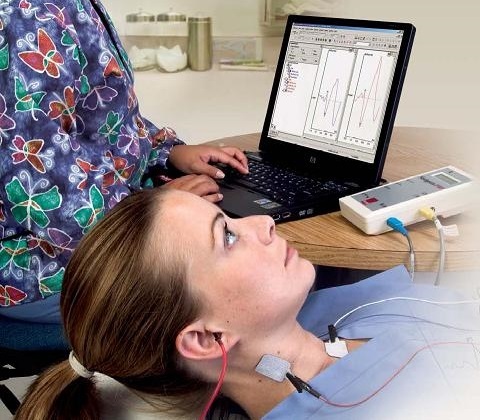
Electrocochleography (ECoG)
Electrocochleography (ECoG) is a specialized diagnostic test that measures electrical potentials generated in the inner ear in response to sound stimuli. It’s primarily used to evaluate the function of the cochlea and the auditory nerve, especially in cases of hearing loss or disorders like Ménière's disease.
Purpose of ECochG:
- ✓ Diagnosing Hearing Disorders
- ✓ Evaluating Ménière's Disease.
- ✓ Preoperative Assessment.
Procedure of Electrocochleography (ECoG):
Preparation:
Patients may be advised to avoid caffeine or certain medications before the test.
Electrode Placement :
Small electrodes are placed on the eardrum or within the ear canal and sometimes on the scalp.
Stimulus Presentation :
Sounds (usually clicks or tones) are delivered through headphones or directly to the ear.
Data Recording:
The electrodes record electrical responses from the cochlea and auditory nerve. These responses are displayed as waveforms on a computer.
Male Nurses in India, Female Nurse in India,
Service Provide Location
- Noida
- |
- Ghaziabad
- |
- Greater Noida
- |
- Nehru Nagar
- |
- Raj Nagar
- |
- Delhi
- |
- New Delhi
- |
- Faridabad
- |
- Gurgaon
- |
- Vaishali
